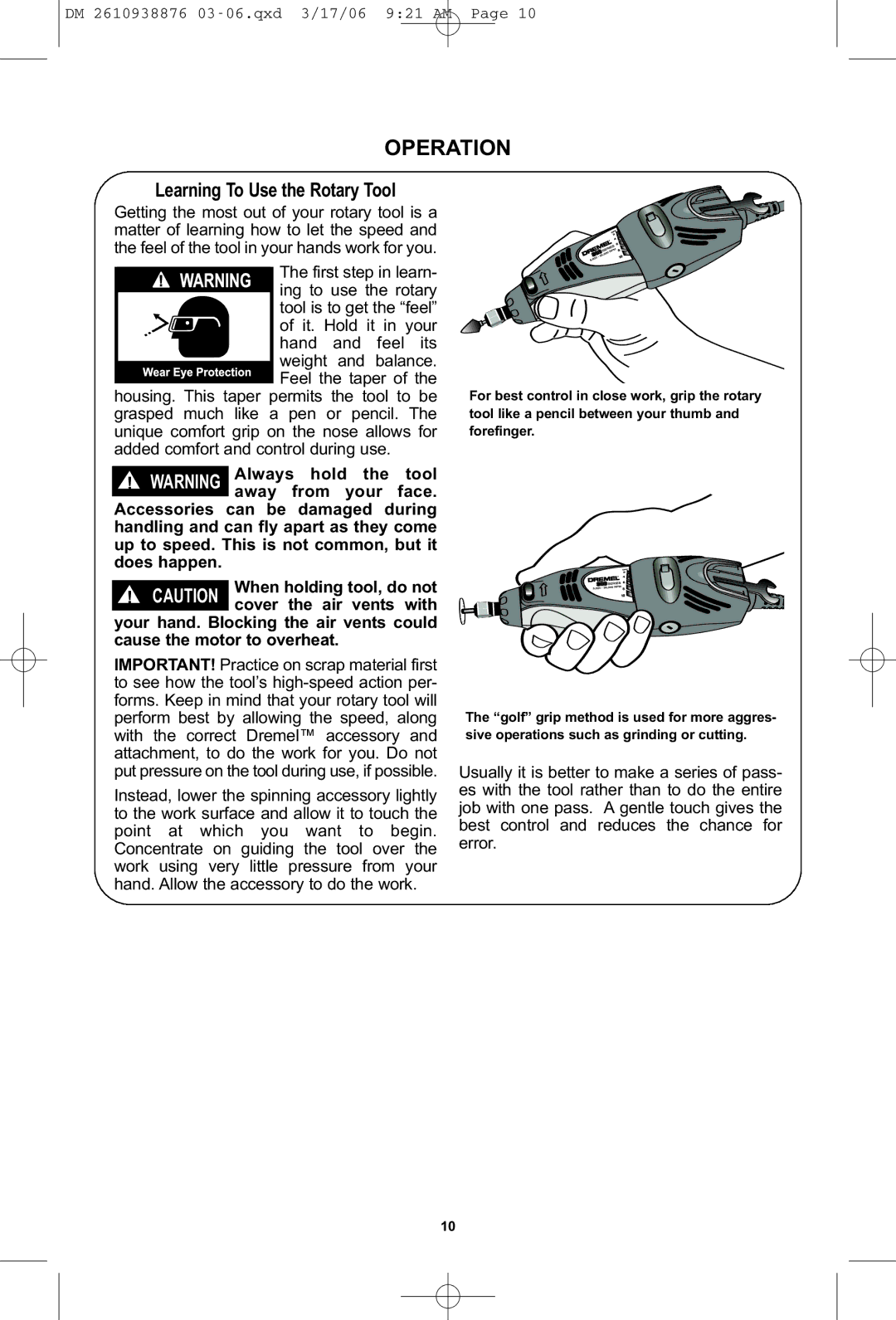
DM 2610938876
OPERATION
Learning To Use the Rotary Tool
Getting the most out of your rotary tool is a matter of learning how to let the speed and the feel of the tool in your hands work for you.
The first step in learn- ing to use the rotary tool is to get the “feel” of it. Hold it in your hand and feel its weight and balance. Feel the taper of the
housing. This ![]() taper permits the tool to be grasped much like a pen or pencil. The unique comfort grip on the nose allows for added comfort and control during use.
taper permits the tool to be grasped much like a pen or pencil. The unique comfort grip on the nose allows for added comfort and control during use.
! WARNING Always hold the tool away from your face.
Accessories can be damaged during handling and can fly apart as they come up to speed. This is not common, but it does happen.
! CAUTION When holding tool, do not cover the air vents with your hand. Blocking the air vents could
cause the motor to overheat. IMPORTANT! Practice on scrap material first to see how the tool’s
For best control in close work, grip the rotary tool like a pencil between your thumb and forefinger.
The “golf” grip method is used for more aggres- sive operations such as grinding or cutting.
Usually it is better to make a series of pass- es with the tool rather than to do the entire job with one pass. A gentle touch gives the best control and reduces the chance for error.
10
